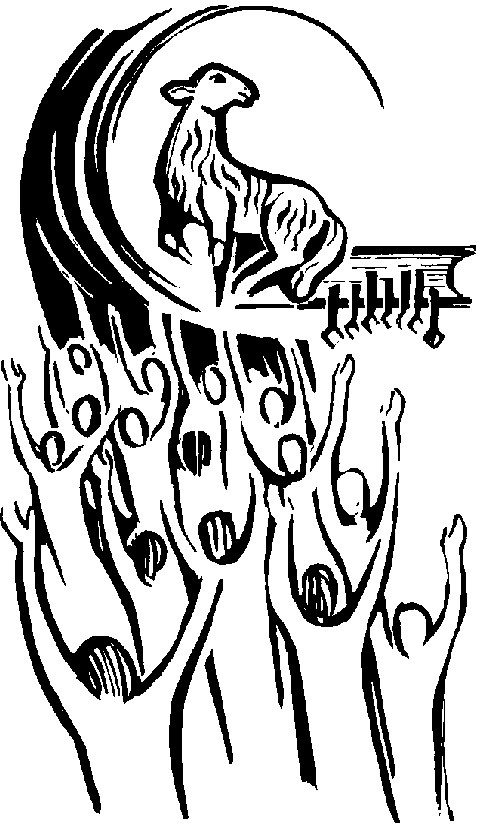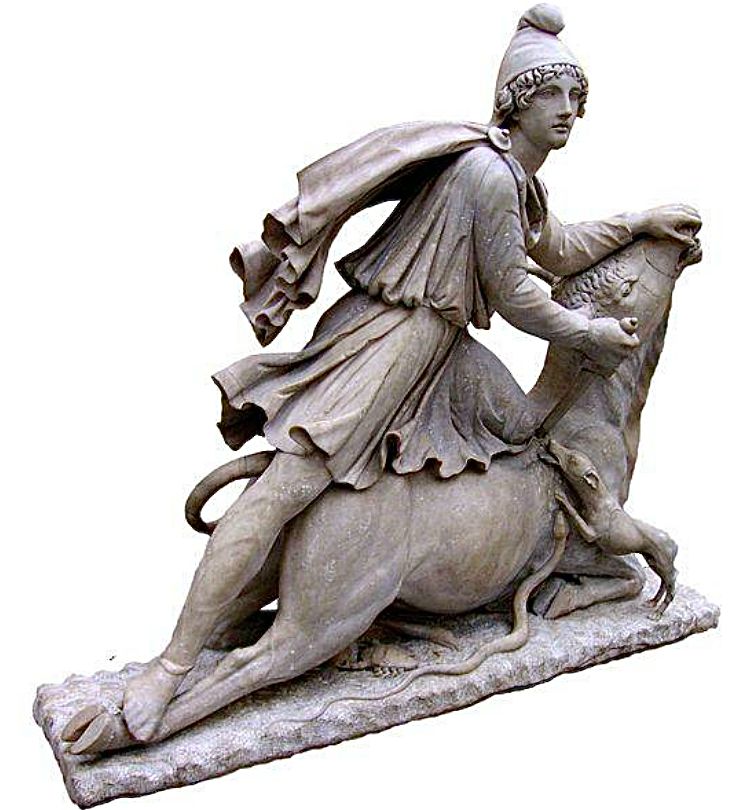Urban Amy: I’m wondering about Animal Sacrifice. Whenever pagans are accused of doing ‘Evil’, the common response seems to be “We don’t worship Satan (not appearing in our pantheon), we don’t curse people, and we don’t kill animals, so please take your ignorant hatred elsewhere.”
Now I am a city chick and I like bacon on my cheeseburgers. What I mean is I know NOTHING about Animal Sacrifice. Please help a girl out.
Dear Urban Amy,
Fascinating question. I, too was raised in a mindlessly numbing city where meat came in shrink-wrapped styrofoam trays and farm animals were petted once a year at the fair and then hands were washed immediately and thoroughly. There was a HUGE disconnect between the pork chops my Mother served and the pig races we cheered on at the fair. So for the average modern city dwelling hu-man, with a commute to a job that where you tap on plastic keys with your fingers, the idea of ritualistically killing a living entity for the purposes of magick is repugnant.
But I will wager that the repugnancy has mostly to do with the idea of killing an animal in the first place. And that abhorrence is simply because most of us now live our lives far, far away from the place where bacon cheeseburgers are born, raised, cared for – and slaughtered.
But only 100 years ago fully 1/3 of Americans lived on a farm. (by the eve of WWII {only 70 years ago!} one in five Americans were  still farmers). The deliberately interrupted life cycle of livestock is something well known to our Grandparents and Great-grandparents. Indeed, the act of killing (wild or domesticated) animals for food (clothing, tools, etc,) is one of the cornerstones of our existence as thinking creatures.
still farmers). The deliberately interrupted life cycle of livestock is something well known to our Grandparents and Great-grandparents. Indeed, the act of killing (wild or domesticated) animals for food (clothing, tools, etc,) is one of the cornerstones of our existence as thinking creatures.
It is only recently that we have become distanced from the ritual that my country cousins in Colorado used to enact every Autumn: The Chicken Dis-assembly Line.
All Spring they raised their chickens, guarded them, named them, cured them of illnesses, played with them, showed them proudly at 4H fairs, and then, when it was time, one morning they assembled in the yard of their house with several tables, gloves, buckets and an ax.
Everybody had a job, from holding the bird, to plucking feathers, to chasing down the chicken after the deed had been done. Much work followed, and that night they served – and raised a toast to – Henrietta.
My good friend Jenya raises rabbits and she likes to say: “They only have one bad day in their entire lives”. And even that is basically a sudden and surprising moment that is over in a heartbeat.
Now my Country Cousins are all good Christians and Mama Jenya is a Feri Goddess and neither one has ever raised that blade with the intention of doing Spellwork. But really, is it such a huge leap? The blood soaked Old Testament does contain 14 explicit calls for animal sacrifice after all.
Perhaps part of the perception problem is that one of our Hollywood History moments is ‘primitive’ people slaying some cute fuzzy critter (“Cutting a calf on a flat rock on a hilltop”) in order to assuage some invisible god that they are afraid of and do not understand.
Nothing could be further from the Truth. In Voudoun (Santeria, Vodou, Yoruba, etc.,) the sacrifice of a rooster (for example), is considered a huge honor for the bird and is always done with the proper sanctity. It is serious business to remove a piece of one’s lifestock.

Historically almost every culture from the Sumerians to the Vietnamese to the Mayans to the Celts practiced Animal Sacrifice, and it can be found in Hinduism, Judiasm, and Islam today.
And it can always be observed in every ‘folk religion’ of the world – meaning every culture where the people live side by side with their animals and grow their own food and practice a religion that is grounded in Nature and the yearly cycles of the plants and animals. Sound familiar, O civilized Paganus?
If your religion is everywhere and at all times, and your livestock animals are also a constant part of your life, then it follows that you would want to please your gods by offering them the greatest treasure that you possess: An animal from your stock.
Perhaps before we condemn a ‘foreign’ spiritual practice we should first step back and see how many steps we have taken back from the rural, agricultural and pastoral lifestyle that our distant ancestors (like, say, your Mother’s Grandfather) enjoyed.
~Ask Angus
Send your questions to: [email protected]
(Pics from Wikipedia Commons, docstoc.jpg and allcreation.franciscan-anglican.com)

















